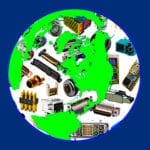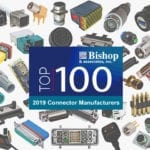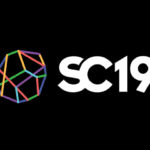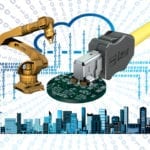Hydrogen Fuel Cells Offer Alternative to Batteries
Connector makers are helping automobile makers in their push to make hydrogen fuel cells a clean-energy option for cars.
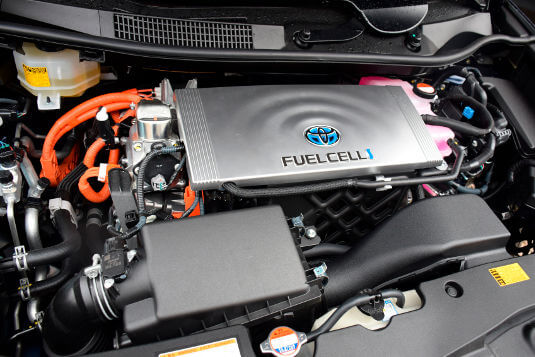
Falling lithium-ion battery prices, continuous hydrogen fuel cell technology advancements, changing consumer preferences, government support for alternative fuel research in China and Europe, and the impact of Elon Musk’s Tesla have converged to make the electric car a reality. More than five million EVs are now on the roads. BloombergNEF estimates that electric cars will be less expensive than internal combustion vehicles by 2022. However, another alternative fuel vehicle is also advancing in the background.
A flurry of activity is underway in automotive hydrogen fuel cells. Toyota’s 2019 Mirai and Honda’s 2019 Clarity Fuel Cell sedan are now available in California. Canada is creating a system of hydrogen fueling stations in British Columbia. The electronics industry is also innovating on behalf of this emerging technology.
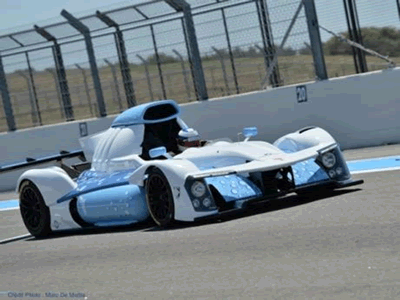
Fischer Connectors provided connectors used in a race car powered by fuel cells.
Fischer Connectors has been working with Swiss electric propulsion company GreenGT to develop components for its integrated electric powertrains. The company focuses on powertrains, control electronics, and energy storage systems. Fischer’s products are showcased in a race car, the GreenGT H2, powered by fuel cells. Weight was a central element in the car’s design, so developers picked the Fischer UltiMate series, which uses aluminum to reduce mass. Those connectors can transmit up to 800A and 600V, levels needed to power the racer’s electric motors.
In addition to standard components, Fischer developed custom solutions for the demonstration car. High-power connectors capable of delivering up to 275A at 7.0kVDC/5.0kVAC were needed to kick-start the system and the fuel cell. Developers noted that even though hydrogen is far less dangerous than gasoline, safety was still a primary concern.
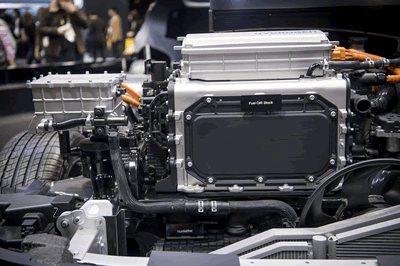
Fuel cell stacks from Bosch use a number of different connector types.
Specialty high-powered connectors are needed to link the electric motors to the power source in hydrogen fuel car vehicles. TE Connectivity’s EVC 250 main contactor is a high-voltage product that can be used to connect and disconnect the vehicle battery and protect the vehicle from thermal overload. It can switch off overcurrents of up to 2,000A. It can be used in fuel cell vehicles as well as hybrids and electric vehicles. The contactor family has larger contact gaps and optimized switching dynamics, along with high-performance arc-suppressing magnets to effectively control the switching arc. Components have continuous current ratings of 250A, with short-circuit carry capability of 6,000A range of circular and USB connectors are included in Amphenol’s fuel cell offerings.
Amphenol LTW, part of the Amphenol Industrial Products group, offers RJ and RBL connectors that are suitable for hydrogen. The company’s expertise in waterproofing makes it a good choice for components that are used in the rugged automotive environment, which is exposed to salt spray, moisture, and chemicals. The company’s EV series of connectors, designed for automotive drive systems, includes the IP2X fingerproof connector, which was designed to connect power cables to a power supply. The IP2X can be used in both battery and fuel cell applications and is field repairable and easily handled due to a sleeve that protects users from the ambient heat present in battery packs, fuel cells, and capacitors.
Stäubli provides large-scale connectors that are used in high-flow hydrogen refueling stations. The company’s CHV 08 fuel nozzle connectors and BRH 08 breakaway safety connectors are unique products that play a critical function and safety role. The CHV 08 is fully shielded for contact with users and features an ergonomic design. The BRH 08 stainless-steel connector prioritizes user safety. In the event of a car starting while still connected to a fueling station, this connector enables automatic shutdown of the fueling source module.
While hydrogen technologies are making small inroads in consumer vehicles, commercial trucks may provide an adjacent market for hydrogen fuel cell technologies, not for the drive train but for stationary power systems. Trucks are typically outfitted with auxiliary power units (APUs). APUs are used to power air conditioners and generators when vehicles are parked, enabling the drivers to use cabin systems or trailer climate controls without idling the engine during overnight stops, saving fuel and limiting pollution. Hydrogen fuel cells can be used as backup energy sources or generators for these applications. Even if hydrogen fuel cells don’t find widespread use in automotive applications, these types of targeted and auxiliary uses may provide a viable future for hydrogen power in the automotive space.
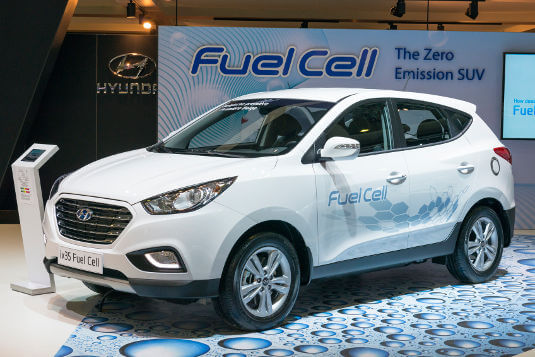
As the world’s vehicle fleets slowly turn towards new technologies, it’s becoming clear that electric batteries and fuel cells will coexist on the alternative fuel marketplace. Some companies, such as Nikola, will offer both. At the present time, hydrogen is not going to be the dominant technology, but researchers are continuing to investigate its potential. The heavy-duty, high-power, lightweight connectors required to bring hydrogen to power are already on the scene.
Like this article? Check out our other New Technology and Electric Car articles, our 2019 Article Archive, and our Automotive Market Page.
- State of the Industry: 2022-2023 Connector Sales - April 16, 2024
- Amphenol is On a Roll - April 2, 2024
- Nicomatic Proves That Two Heads are Better Than One - March 26, 2024
